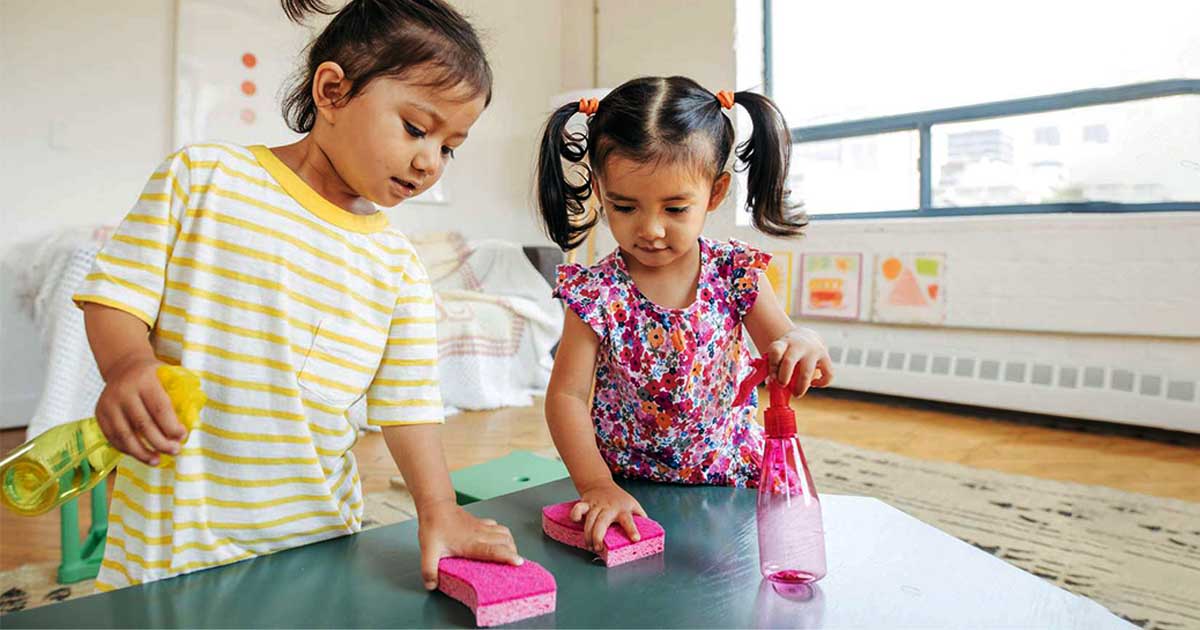In the fast-paced rhythm of modern life, the moments we share with our children can sometimes feel fleeting. As parents, we’re often juggling the demands of work, household responsibilities, and the constant ping of digital notifications.
Amidst this chaos, the quest to connect with our children on a meaningful level becomes more crucial than ever. That is why it important than ever to learn how to spend quality time with your child.
This article will show you how to make the most of the time you spend with your child. It’s not just about being in the same room or doing chores together. It’s about making special moments that you both will remember.
Life can be complicated, but spending quality time with your child doesn’t have to be. So let’s begin!
How To Spend Quality Time With Your Child

1. Be Present:
The first step in learning how to spend quality time with your child is to be present when you are with them. Your work can wait for a few minutes to ensure that you have a strong emotional connection with your child.
Dr. John Gottman, a leading psychologist who specializes in relationships and parenting, has conducted extensive research on parent-child dynamics.
His research consistently shows the impact of emotional availability and parental presence on children. It also proves that these two factors help establish secure attachment bonds in a child’s brain — which are necessary for their emotional development.
Attachment theory explains that trust and emotional security create an environment where children can thrive. When parents are available and attentive, their children feel supported to explore the world and express themselves openly.
Emotionally attuned parents build a safe space for kids to learn about themselves and the world around them — this will allow them to form healthy relationships as they grow older.
2. Create Special Routines:
When it comes to spending quality time with your child, you need to get creative. One way you can do this is by establishing routines in your everyday life.
According to Dr. Bruce Feiler and many other child psychologists who have studied the topic, there are two main benefits of setting up regular routines: predictability and stability.
For children, knowing what’s going to happen next can be incredibly comforting. This is because it offers them a sense of security. It also helps reduce anxiety and promotes emotional stability.
That’s why having a predictable routine becomes even more when you are trying to spend quality time with your child.
On top of that, setting up routines can help ensure that parents spend enough quality time with their kids.
3. Listen Actively:
Dr. Laura Markham is a clinical psychologist who specializes in parenting, she has been well known and respected for communicating the value of active listening in parents-child relationships.
Dr. Markham believes that through active listening it fulfills trust, empathy, and open communication between parents and children.
Active listening is more than just hearing words, it’s about fully grasping everything your child is saying with both their thoughts and emotions – without any judgment or interruption. This shows them that you empathize with what they’re going through which then makes them feel understood.
When parents start to actively listen to their kids – space is created for honesty, allowing them to freely express how they feel without fearing criticism or dismissal from the parent.
4. Engage in Play:
Dr. Stuart Brown, a prominent play researcher, has studied the unmistakable importance of play in children’s lives. One of his tips on how to spend quality time with your child is that you need to participate more in their play.

Play isn’t as simple as it may seem, and experts such as Dr. Brown have made this clear. It’s not just a way to entertain children; it’s an essential part of their emotional, cognitive and social progress.
When parents actively involve themselves in playtime, they help provide kids with an environment where they can grow these key skills like using their imagination, being creative, and finding solutions.
Whether it be building blocks together or solving puzzles side by side, these playful interactions are great tools for nurturing adaptable thinking patterns
5. Explore Their Interests:
Exploring their interests you take an active step towards learning how to spend quality time with your child despite your busy work days.
Dr. Mary Sheedy Kurcinka highlights the importance of validating and supporting children’s interests and passions. Taking an active interest in your child’s hobbies and activities demonstrates that you value their individuality and encourage their personal growth.
By participating in activities they enjoy, you not only bond with your child but also help them develop confidence and self-esteem.
6. Quality Over Quantity:
Dr. Robert Brooks has made a living out of researching parent-child relationships and says when it comes down to it, quality time is more important than quantity.
Parents who spend every waking minute with their child might think they’re doing the right thing, but Dr. Brooks’ work suggests that those short interactions can be just as meaningful. So when learning how to spend quality time with your child, you need to focus more the quality of the time spent.
His research showed that having a heartfelt conversation or simply engaging in an activity together can lead to deep connections and emotional bonding.
The key is being present during these moments and fully engaged so that your child feels heard and understood.
7. Create Tech-Free Zones:
Clinical psychologist and author Dr. Catherine Steiner-Adair has dedicated a significant amount of time to researching the effects of technology on family dynamics. She says that too much screen time is terrible for our relationships with children and the emotional bond we have.
Our society is dominated by screens in this digital age, so it’s important to establish a routine. If parents are constantly engaging with screens, then they’re not paying attention to their little ones. This takes time away from quality bonding activities that nourish strong emotional bonds.
Dr. Steiner-Adair proposes a solution: creating tech-free zones within the home.
8. Go on Adventures:
Dr. Anthony Rao, a respected child psychologist and author, champions the importance of shared experiences in nurturing strong parent-child relationships. According to Dr. Rao the best way to learn how to spend quality time with your child is to go on adventures with your kid.

Observe, experience, and discover. These are the three keys to any parent-child relationship. Explore with them and show them a world they still don’t know. From museums, zoos, or nature trails you have many options that will teach your child something new while creating amazing memories.
Parents learn as well. Each adventure offers a chance to grow closer to your child. In this space, learning and growth happen simultaneously between both sides.
Ask questions and keep digging deeper into these new environments because it is only through curiosity can we ignite a sense of wonder in our children. As they see new things, and learn more about the world around them their thirst for knowledge grows stronger.
9. Encourage Independence:
Dr. Kenneth Ginsburg is a doctor and writer who knows everything there is to know about how adolescents grow up. He says that it’s super important that we teach our kids how to be independent.

Dr. Ginsburg believes that when children are allowed to make decisions about their own lives, they become more confident, resilient, and overall happier people.
One way parents can encourage independence in their kids is by giving them more responsibility for their day-to-day activities. They should also be given opportunities to make choices and plan things themselves (within reason of course!).
When kids can take charge, it helps develop major life skills and builds up a great sense of self-efficacy. Studies suggest that once kids learn how to be more independent they are less likely to be sent into a downward spiral when faced with challenges later on in life.
10. Express Affection:
Dr. Dacher Keltner is a well-known psychologist and author who has studied the psychological and physiological effects of physical affection.
His research shows that love, in essence, makes us warm and fuzzy inside. He found that when we physically express our feelings towards our kids, it triggers the release of oxytocin—the “love hormone.” This hormone plays a role in creating trust and bonding with others.
When parents give their children hugs, cuddles, or verbally affirm them, it can make them feel happy and loved. And doing these things consistently helps build a strong bond between parent and child.
Furthermore, Dr. Keltner has also discovered that expressing love regularly contributes to stronger relationships overall.
By playing with your child, listening to them closely, or spending quality time without screens; you help them grow while feeling loved and supported. When you do these simple gestures every day, they’ll remember how special they are to you—and will instill the same values into their future families too.
A Word From Mind Family
Nurturing a strong bond with your child doesn’t require grand gestures or complex strategies. Instead, it’s about embracing simple, everyday practices that prioritize connection, communication, and love.
By making time to play, listen, and engage with your child, you lay the groundwork for a relationship filled with warmth, trust, and understanding. Remember, it’s the small moments of togetherness, free from distractions, that leave the biggest impact.
So, from our Mind Family to yours, prioritize quality time, show genuine care and affection, and watch as your parent-child bond grows stronger, fostering a lifetime of happiness and well-being.
Frequently Asked Questions (FAQs)
1. How to spend quality time with your child?
Even when you’re busy, you can find ways to connect with your child. Focus on being fully present during the time you do have. This could be a few minutes of talking about their day, playing a quick game, or reading a bedtime story together. It’s about making the most of small moments.
2. What are some activities I can do?
You can do many simple activities that don’t require a lot of time or preparation. Play games, go for a walk, cook a meal together, or explore a hobby. The key is to engage in these activities with full attention and enthusiasm.
3. How important is it to have tech-free time with my child?
Very important. Setting aside tech-free time allows you and your child to connect without distractions. It helps in listening to each other better and engaging in more meaningful conversations. This can strengthen your relationship and improve your child’s social and emotional skills.











